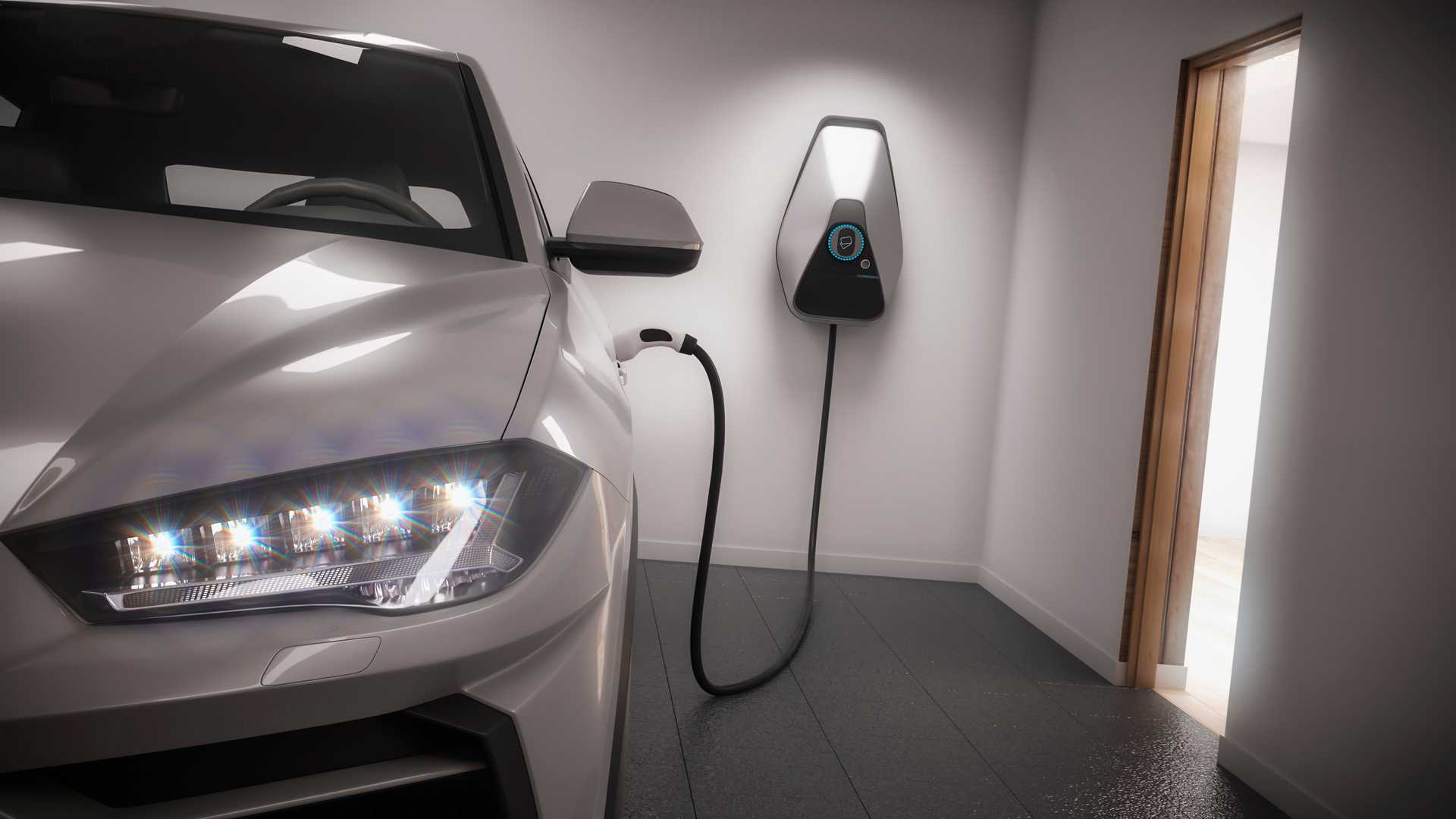
All electric cars come with a means to connect to the power grid. The charging unit built into an EV converts AC house current into DC electricity to charge the battery pack. While it’s possible to charge an electric car via a standard 110-volt outlet, it’s not particularly practical. That’s because it can take anywhere from eight to nearly 24 hours to bring its power cells up to a full charge, depending on the vehicle. That’s why it’s prudent to have a dedicated 240-volt line installed, like those used with heavy duty electric appliances, to enable much quicker Level 2 charging.
You’ll also want to purchase an external charging unit, which is also called the electric vehicle service equipment (EVSE). They come in plug-in portable and wall-mounted units that are hard-wired directly to a home’s electric service. A so-called “smart” charger includes Wi-Fi connectivity for added convenience. A Wi-Fi enabled charging unit allows an owner to “communicate” with the device via a downloadable smartphone app.
A Wi-Fi enabled ESVE allows you to remotely initiate a charge, check on its progress, and monitor how much energy the vehicle is using. The unit can notify you when the vehicle is charging and when it has finished, and can send a reminder to plug in the car if you haven’t done so. Some Wi-Fi charging units can even receive voice commands via Amazon’s Alexa virtual assistant.
Importantly, if your local power company charges less for electricity during certain off-peak times, you can use the app to schedule a charge during that period to save money. Some smart chargers can check the Internet for the times when your provider charges less for electricity rates and will automatically initiate charging during those hours.
While basic home chargers can cost from $300-$500, the added Wi-Fi capabilities come at a higher price, usually around $600-$800 or more. Popular brands in this regard include Siemens, JuiceBox, and ChargePoint, among others. An online search can help you find a unit that comes with the features and power output that meets both your needs and budget. Expect to pay another several hundred dollars to have a wall-mounted unit installed, depending on local labor rates and permit costs.
Depending on where you live, you may be able to take advantage of state and/or local incentives for having an EVSE installed. For example, the Los Angeles (Calif.) Department of Water and Power is offering rebates of up to $500 for the purchase of a qualified Level 2 charger. A comprehensive database of incentives for buying and installing a home charging unit can be accessed via this link on the ChargePoint website.
If you’re shopping for a home EV charger, whether basic or Wi-Fi equipped, make sure the unit is suitable for your needs. Experts suggest choosing an EVSE that can produce at least 30 amps of power, and it should be connected to a circuit breaker that can handle at least 40 amps. Generally speaking, this type of unit would be able to add around 30 miles of operating range to a given battery pack per hour. Even if you currently own an older electric car, buying more capability than you may need today makes the installation “future proof” should you eventually trade it in for a model that can handle the added power.
Make sure the unit’s cable is long enough to reach your electric car’s charging port. Fifteen- and 25-foot cables are common. Only consider charging units that have been tested and certified for safety by an independent source like Underwriters Laboratory (UL). And if you’re having a charger installed outdoors, make sure it’s rated for that purpose.
If you’re considering a smart charger you’ll want to ensure your home’s Wi-Fi signal is strong enough to reach the garage. If it’s too weak, you’ll want to buy a Wi-Fi range extender that will pick up the signal and rebroadcast it. This device simply plugs into a standard power outlet somewhere between your router and where you charge the car, though you may have to experiment with placement to maximize its performance. You can find a basic Wi-Fi range extender in the $30-$50 range.
It should be noted that some EVs, including the BMW i3 and Nissan Leaf, offer their own apps that duplicate many of a smart charger’s added functions. They can also offer the ability to remotely warm up the car’s cabin in the winter or cool it down in the summer while the vehicle is still connected to the grid. This helps minimize use of the vehicle's heater or air conditioning system when you pull out of the garage to help preserve the car’s operating range.
If your EV is already supported by an app, and/or you otherwise feel a non-Wi-Fi charger would suffice, you can buy either of three popular ClipperCreek units directly from MyEV.com. Coming in both portable and hard-wired configurations, they’re priced between $379 and $565. You can check them out via a link embedded in any of our used EV listings under the “Home Charging Options” section.
ABOUT THIS ARTICLE:
Change Your Location
Weekly graph